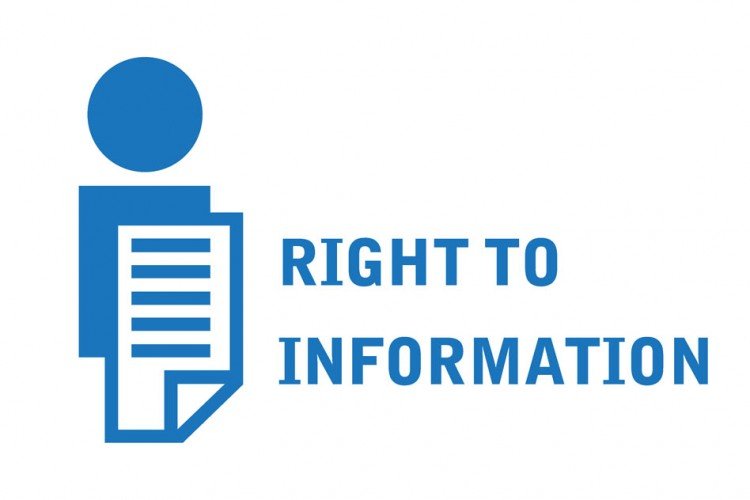Originally Published On Factly | Author: Rakesh Dubbudu Image Source: cimap
It’s been a decade since the Right to Information (RTI) act came into being. It has definitely lived up to the expectation of being one of the most progressive and citizen friendly legislation ever in the country. Even according to various global non –profits, the Indian RTI Act is rightly considered one of the most progressive and advanced laws in the world and serves as a model for assessing similar laws across the world. Number of citizens who hitherto had no way of asking questions & getting information from the government turned into RTI activists and started asking questions to those in power. The act is still in a state of evolution and citizens also should find ways of making the best use of this sunshine legislation. This write up will dwell on the different ways RTI can be used and how that information can be used to effect changes or corrective measures.
According to conservative estimates, about 4 Million (40 Lakh) RTI applications are filed in the country each year and this number is increasing each year. While these applications could be on various issues and could have been filed for many different expected outcomes, the best way of using the RTI act is the following,
To address deficiency/delay in service delivery
To expose abuse of power/authority, arbitrary decision making etc
To seek information that can used for advocacy and other purposes
Before we get to looking at each one of these in detail, one mandatory question that every applicant needs to ask is about the utility of the information received. The applicant needs to come up with answers for what he is going to do with the information sought and what is the ultimate objective behind seeking this information. This will help the applicant have a 360 degree view and also to ensure that the information received has the desired impact.
To address Deficiency/Delay in Service Delivery
Many a time, citizen services delivered by the government are deficient. There could be many reasons for the same. It could be due to the lack of ownership on the official’s side, lack of understanding/awareness on the citizen’s side, lack of adequate follow up, culture of bribes, corruption etc. The objective of seeking information in this category is to make sure that deficiency in the service delivery is corrected and things get done on time.
There are two ways to tackle this issue. The first one is to ask for information that would result in the delivery of service that could be pending for a long time. This is especially applicable at the grassroots (dealing with local governments), where entitlements due to the citizen are either delayed or never given. The kind of information sought could be the rules governing such service delivery, related timelines, status of the specific application of the citizen to get that entitlement, reasons for rejection/delay(if any) and details of punitive/compensatory measures (if any) in case of deficiency/delay in service etc. This is more like asking if there is a citizen’s charter defining the service delivery.
There can only be two obvious answers to these set of the questions. Either the official in charge has to reply saying the pending service was delivered (meaning the RTI application has worked in delivery of the service) or he would reply with the reasons for the deficiency/delay in service. This information will help the citizen plan the next step. In some cases, he might need to submit additional documents etc. The reason why the RTI application invariably will work is that the Government officials cannot officially respond saying there is a delay in service for no reason. So in a way, this is like forcing/reminding them to do their work on time. Over time, this should become proactive instead of being reactive.
The second way is one of the frequently asked questions by citizens. ‘The road in my colony is bad. I want to know the reasons’. But do remember that RTI only enables us to seek information which is already on record. So the record will obviously not contain why a specific road is bad. The way to tackle this is to follow the ‘Complaint and RTI’ approach. Every Government department has a grievance/compliant redressal system. The system does not work because there is no adequate follow up and officials they don’t feel the necessity to address such complaints. With RTI, this is bound to change since they are mandated to provide information within a timeframe. The first step is to lodge a formal complaint (get as many people endorse this complaint) on any issue of deficient service with the relevant official. Remember this is not a RTI application, but a normal compliant. Always remember to get a duplicate copy of your complaint stamped with the signature and date as this would serve as evidence in future. Once the complaint is filed, wait for a couple of weeks and then file an RTI application asking for the action taken/status of this complaint. Do not forget to attach a copy of the earlier compliant. This will now work because the official cannot say nothing has been done for the simple reason that each department will have internal rules pertaining to complaint/grievance redressal. He will either forward it to the relevant channel or initiate steps to correct the deficiency. Citizens have to remember that it might need multiple follow ups. One could also ask for details of funds spent, repairs done and other such details that could help in understanding the issue in greater detail.
To expose abuse of power/authority, arbitrary decision making etc
Whenever an activist or a citizen smells corruption in a particular scheme/decision, the way forward is to get all the information to prove such deviations. But take adequate care of your personal safety. If there is a looming threat from the corrupt, get a friend or somebody from a far off place to file the application and get the information. You can ask information like the copy of the complete file related to a project, copy of bills, copy of vouchers, copy of tender documents etc that can establish the corruption angle. But, it is always better to consult a subject matter expert before filing the application. This would help understand more about the kind of documents created & maintained by the government while executing various works or taking various decisions. For e.g., if the information sought is about a civil work executed by the government, then it would be useful to talk to someone who has worked in this area.
Once the information is received and there is sufficient evidence to prove the wrongdoing, one has to make use of the existing mechanism in the government. One could lodge a complaint with the State/Central Vigilance commission with all the evidence. One could also approach the ACB/CBI or even Lokayuktha/Lokpal. The complainant can later follow up with these agencies as to what happened to these complaints and the status of the investigation. And if the information sought is related to corruption at very high places and the applicant does not want to take a risk, then approach a media agency that would be interested in taking this up. The other option is to make it public on some public website without revealing your identity. The objective of seeking information is to expose the wrongdoing and initiate an investigation.
To seek information that can be used for advocacy and other purposes
Quite often, authentic information is required to further the cause one is advocating. It could be data related to Farmer suicides, malnutrition or expenditure on foreign visits of the President etc. It could also be to establish ownership of land/asset. Whatever be the kind of information, there has to be a predefined purpose for the information sought. The applicant can use this authentic information in furthering a cause and as evidence in courts of law etc. The applicant has to ask the right questions to get the right data/information. Make sure you read your application multiple times to check if you are asking the right questions. Again, it might help consulting a subject matter expert before filing an application. Former Central Information Commissioner Shailesh Gandhi’s effort in getting information about the details of under trials as per Sec 436A of CrPC is a fine example of this.
Applications without any apparent purpose will not help the cause
RTI applications without any purpose will not help, because they are only going to fill our shelf space at home and do nothing. This habit of thinking through before filing the application will greatly enhance the utility of the information being sought, thus making the act itself more powerful. RTI has the power to alter power equations, address gaps in service delivery, expose the corrupt etc, but all this is possible when we learn to use it the right way.
File your first RTI application Online for Central Government Departments.
Written by- Rakesh Dubbudu











